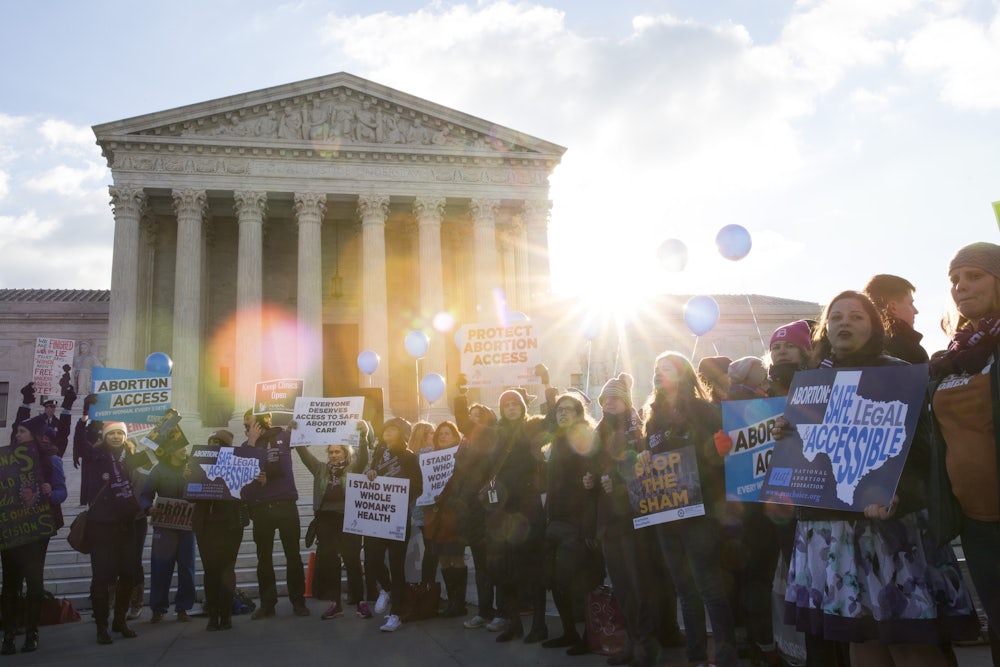Today the Supreme Court heard oral arguments for Whole Women’s Health v. Hellerstedt, a challenge to Texas’s HB2 law, which places prohibitive restrictions on abortion providers. They must have admitting privileges at a hospital within 30 miles of their clinic, plus those clinics must qualify as ambulatory surgical centers. As a result of HB2, the number of abortion clinics in Texas has dropped from 41 to 19, meaning 17 percent of women in the state are now more than 150 miles away from the nearest clinic. The burden on women seeking reproductive care is such that one study found that as many as 240,000 women in the state have tried to end their pregnancy on their own without medical assistance.
According to the law’s supporters, the whole point of HB2 is to help women and make sure that they are medically cared for. That argument does not take into account the fact that abortion is a very safe procedure, far safer than others with no similar restrictions. As Justice Elena Kagan pointed out today, liposuction is 30 times more dangerous than abortion. Yet liposuction providers are not required to have admitting privileges or perform the procedure in an ambulatory surgical center.
